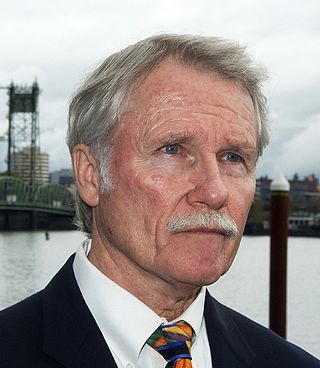
Oracle Corporation is an American multinational computer technology company headquartered in Austin, Texas, United States. In 2020, Oracle was the third-largest software company in the world by revenue and market capitalization. The company sells database software and technology, cloud engineered systems, and enterprise software products, such as enterprise resource planning (ERP) software, human capital management (HCM) software, customer relationship management (CRM) software, enterprise performance management (EPM) software, and supply chain management (SCM) software.

In the United States, Medicaid is a government program that provides health insurance for adults and children with limited income and resources. The program is partially funded and primarily managed by state governments, which also have wide latitude in determining eligibility and benefits, but the federal government sets baseline standards for state Medicaid programs and provides a significant portion of their funding.

John Albert Kitzhaber is an American former politician and physician who served as governor of Oregon from 1995 to 2003 and again from 2011 to 2015. In February 2015, shortly after beginning his fourth term, Kitzhaber resigned from office and was replaced by Secretary of State Kate Brown. A member of the Democratic Party, Kitzhaber was the longest-serving governor in the state's history.
Oregon Health & Science University (OHSU) is a public research university focusing primarily on health sciences with a main campus, including two hospitals, in Portland, Oregon. The institution was founded in 1887 as the University of Oregon Medical Department and later became the University of Oregon Medical School. In 1974, the campus became an independent, self-governed institution called the University of Oregon Health Sciences Center, combining state dentistry, medicine, nursing, and public health programs into a single center. It was renamed Oregon Health Sciences University in 1981 and took its current name in 2001, as part of a merger with the Oregon Graduate Institute (OGI), in Hillsboro. The university has several partnership programs including a joint PharmD Pharmacy program with Oregon State University in Corvallis.

CGI Inc. is a Canadian multinational information technology consulting and Software Development company headquartered in Montreal, Quebec, Canada. CGI went public in 1986 with a primary listing on the Toronto Stock Exchange. CGI is also a constituent of the S&P/TSX 60 and has a secondary listing on the New York Stock Exchange.
The Oregon Health Plan is Oregon's state Medicaid program. It is overseen by the Oregon Health Authority.
We Can Do Better is a grassroots movement based in the U.S. state of Oregon, which aims to bring citizens and stakeholders together to design a health care system that "works better for everyone." It was founded by former Oregon governor John Kitzhaber, M.D. in January 2006. Kitzhaber's goal was to find a way to put money used for health care, which as of 2006 amounted to about $6.3 billion in Oregon, to better use. That year, it was one of three organizations that drew substantially increased funding levels from the Northwest Health Foundation; its grant funds totaled $82,000.
In the United States, health insurance marketplaces, also called health exchanges, are organizations in each state through which people can purchase health insurance. People can purchase health insurance that complies with the Patient Protection and Affordable Care Act at ACA health exchanges, where they can choose from a range of government-regulated and standardized health care plans offered by the insurers participating in the exchange.
Members of the United States population between the ages of 18 and 29 who decide that it is in their financial best interest to forgo health insurance are sometimes referred to as young invincibles by the insurance industry, a term coined to express the idea that the young demographic perceives themselves as immune to sickness and injury. The argument is that these individuals are young and in good health, so they have a low risk of experiencing substantial health issues that would lead to large amounts of spending on health care. Further, this group tends to have a mentality of “it won’t happen to me” with regards to most causes of injury. Together, these beliefs lead to the young invincibles not purchasing insurance.

Covered California is the health insurance marketplace in the U.S. state of California established under the federal Patient Protection and Affordable Care Act (ACA). The exchange enables eligible individuals and small businesses to purchase private health insurance coverage at federally subsidized rates. It is administered by an independent agency of the government of California.
Washington Healthplanfinder is one of the fourteen health insurance marketplaces in the United States and was created in accordance with the Patient Protection and Affordable Care Act, commonly referred to as Obamacare.
The Affordable Care Act (ACA) is divided into 10 titles and contains provisions that became effective immediately, 90 days after enactment, and six months after enactment, as well as provisions phased in through to 2020. Below are some of the key provisions of the ACA. For simplicity, the amendments in the Health Care and Education Reconciliation Act of 2010 are integrated into this timeline.

HealthCare.gov is a health insurance exchange website operated by the United States federal government under the provisions of the Affordable Care Act or ACA, commonly referred to as “Obamacare”, which currently serves the residents of the U.S. states which have opted not to create their own state exchanges. The exchange facilitates the sale of private health insurance plans to residents of the United States and offers subsidies to those who earn between one and four times the federal poverty line, but not to those earning less than the federal poverty line. The website also assists those persons who are eligible to sign up for Medicaid, and has a separate marketplace for small businesses.
kynect, formerly and also called the Kentucky Health Benefit Exchange, is the health insurance marketplace, previously known as health insurance exchange, in the U.S. Commonwealth of Kentucky, created by then-Governor Steve Beshear in accordance with the Patient Protection and Affordable Care Act. Steve Beshear's successor as governor, Matt Bevin, ended Kynect enrollment for individuals as of 2017. From 2017 to 2020, the marketplace operated a web site for small business owners. Bevin's successor, Andy Beshear, announced on June 17, 2020, that Kentucky will reestablish a state health insurance marketplace similar to kynect, with full implementation by January 1, 2022. Kynect was officially relaunched on October 5, 2020, with full implementation in January 2022.
Hawaii Health Connector was the health insurance marketplace, previously known as health insurance exchange, in the U.S. state of Hawaii, created in 2013 in accordance with the Patient Protection and Affordable Care Act. It was located in Honolulu. The marketplace operated a toll-free call center and offered 95 different health plans.

The Exchange Information Disclosure Act is a bill that would require the United States Department of Health and Human Services to submit weekly reports to Congress about how many people are using HealthCare.gov and signing up for health insurance. These reports would be due every Monday until March 31, 2015, and would be available to the public. The bill would "require weekly updates on the number of unique website visitors, new accounts, and new enrollments in a qualified health plan, as well as the level of coverage," separating the data by state. The bill would also require reports on efforts to fix the broken portions of the website.

Monica Wehby is an American physician and politician from the state of Oregon. She was the Republican nominee for the United States Senate from Oregon in the 2014 election against Democratic incumbent Jeff Merkley.
King v. Burwell, 576 U.S. 473 (2015), was a 6–3 decision by the Supreme Court of the United States interpreting provisions of the Patient Protection and Affordable Care Act (ACA). The Court's decision upheld, as consistent with the statute, the outlay of premium tax credits to qualifying persons in all states, both those with exchanges established directly by a state, and those otherwise established by the Department of Health and Human Services.

Cylvia Lynne Hayes is an American consultant who was the de facto First Lady of Oregon as the fiancée of former Governor John Kitzhaber.
GoHealth is a marketplace for Medicare plans including Medicare Advantage, MediGap and Medicare Part D, which are programs administered through private health insurance companies. It also operates an online health insurance marketplace offering individual health insurance and short-term health insurance.









